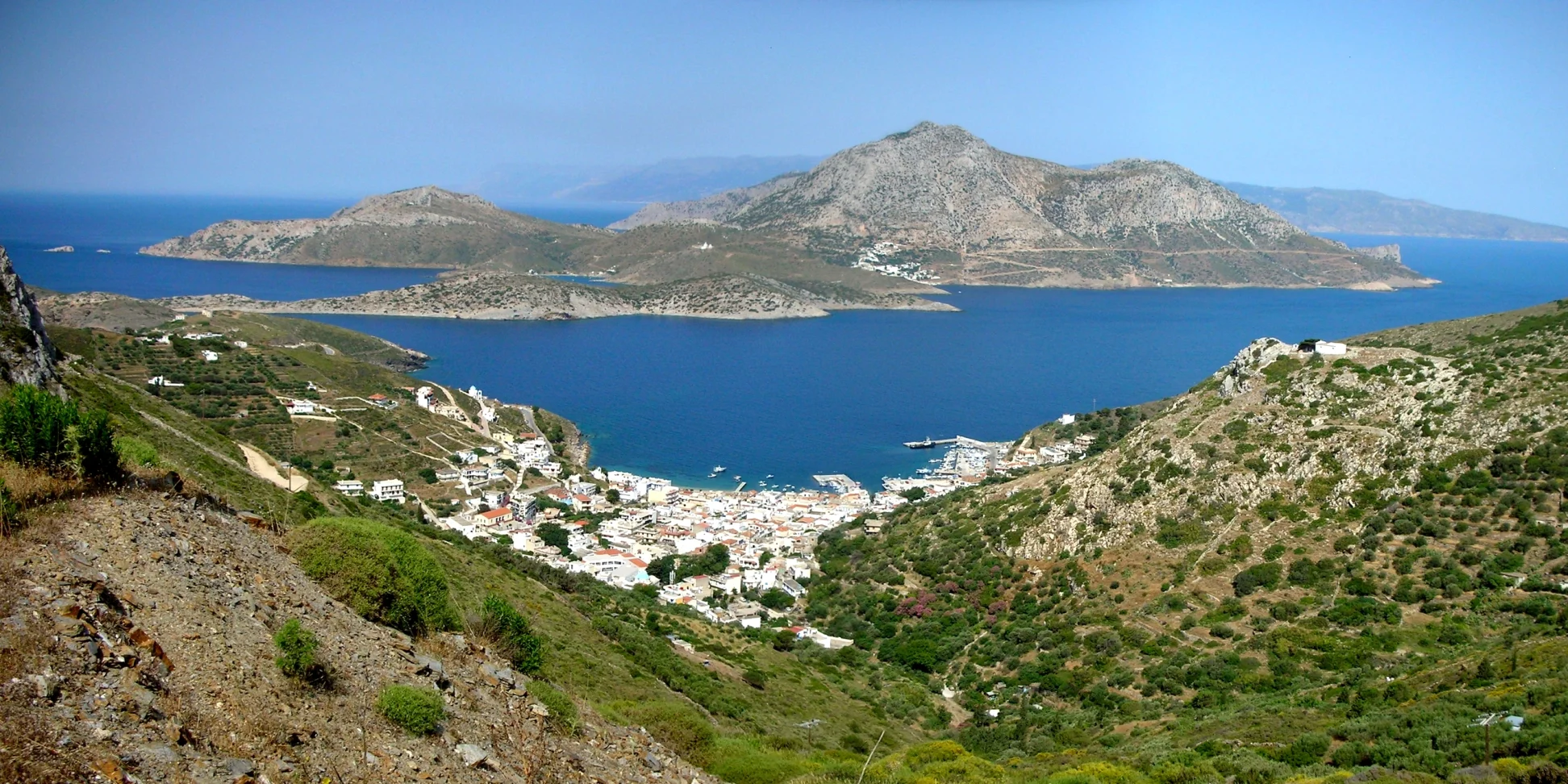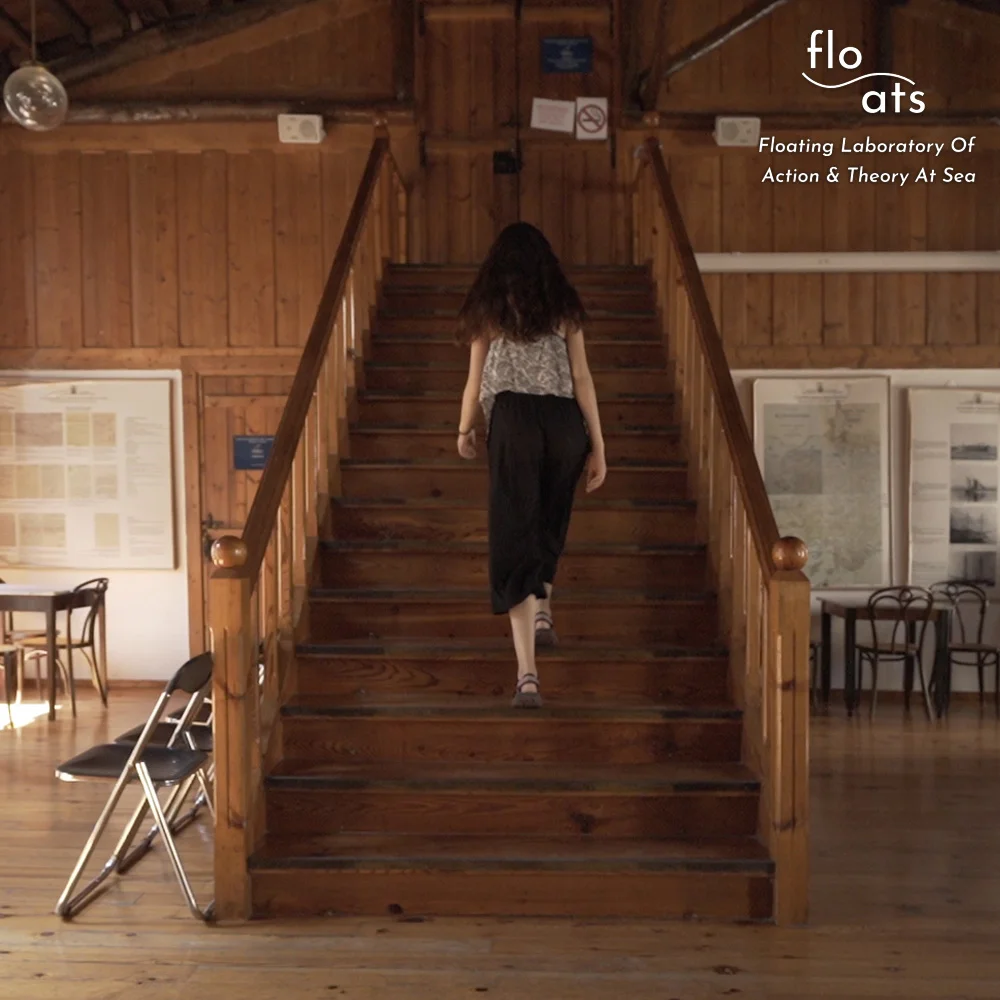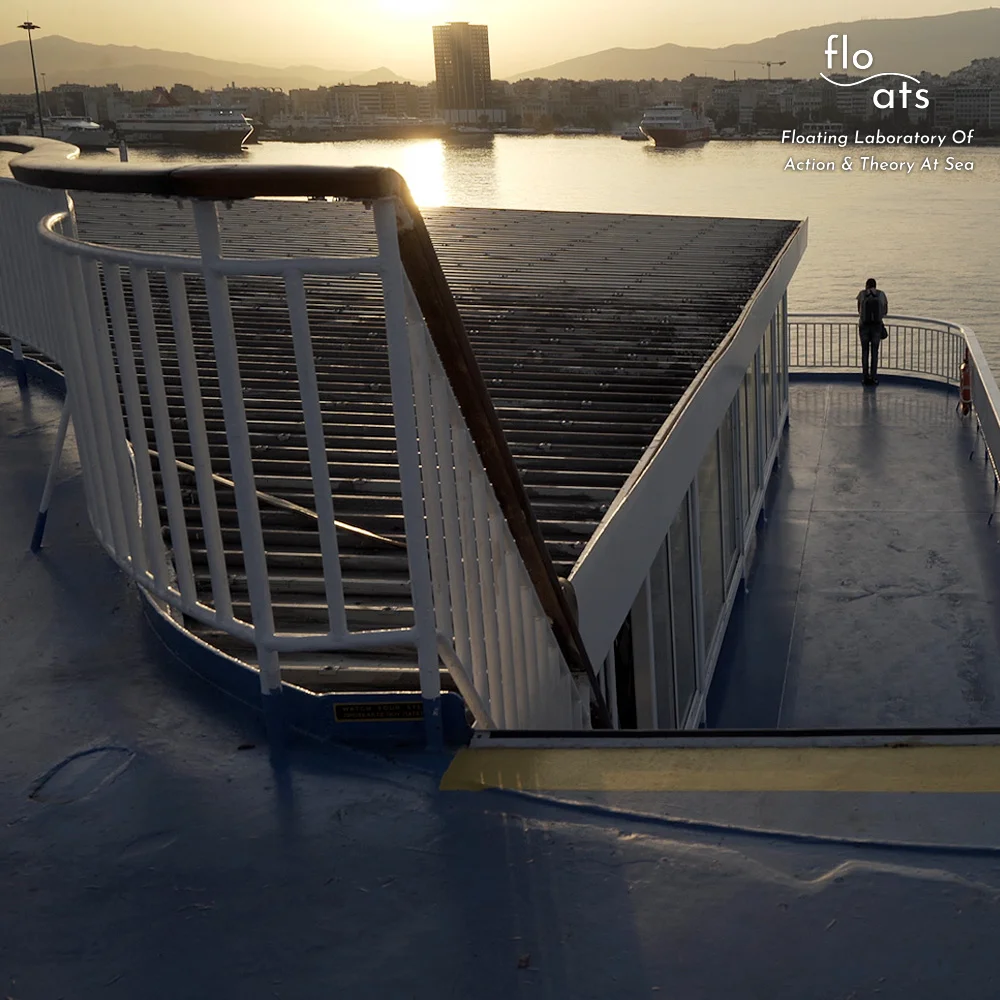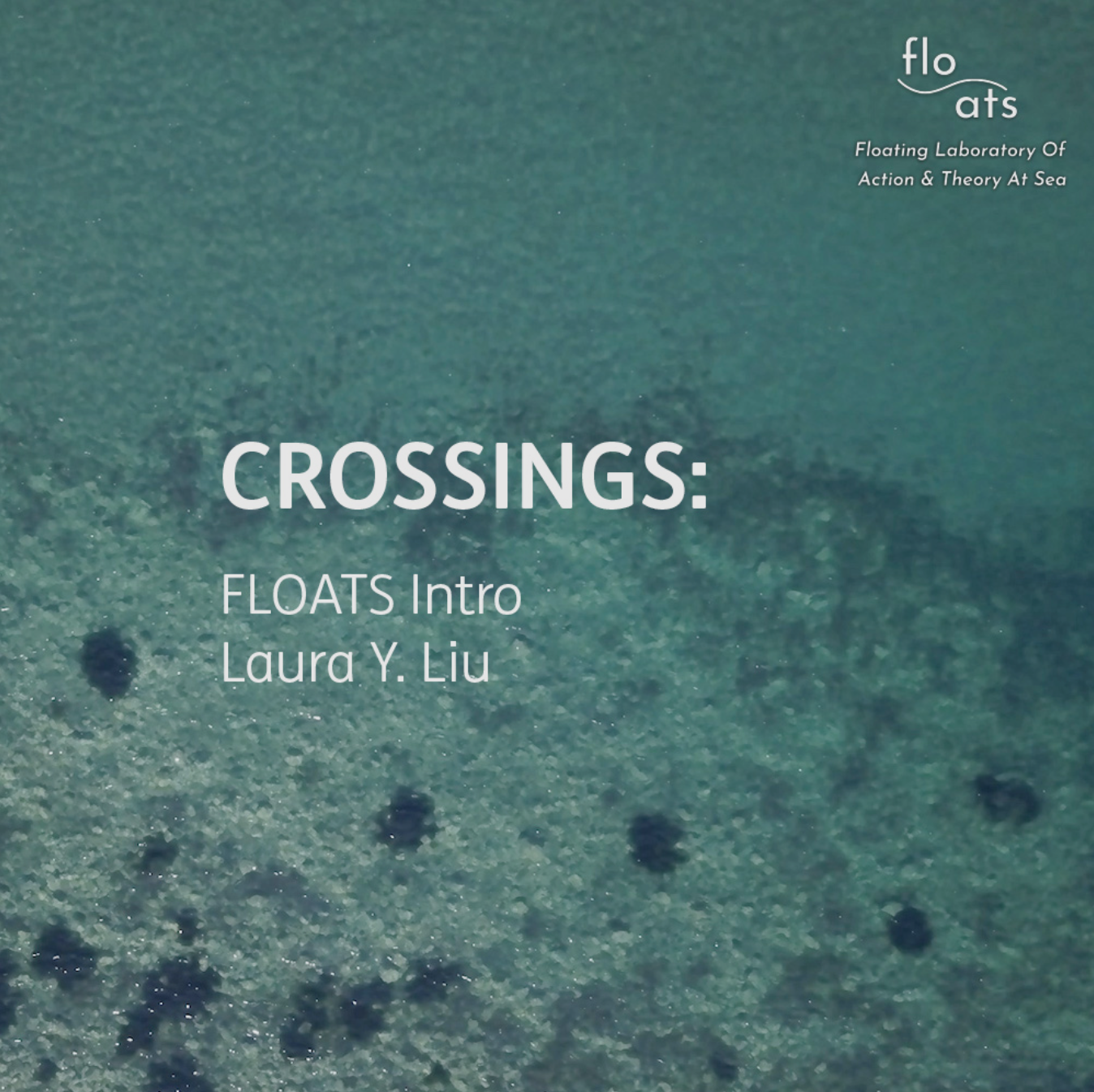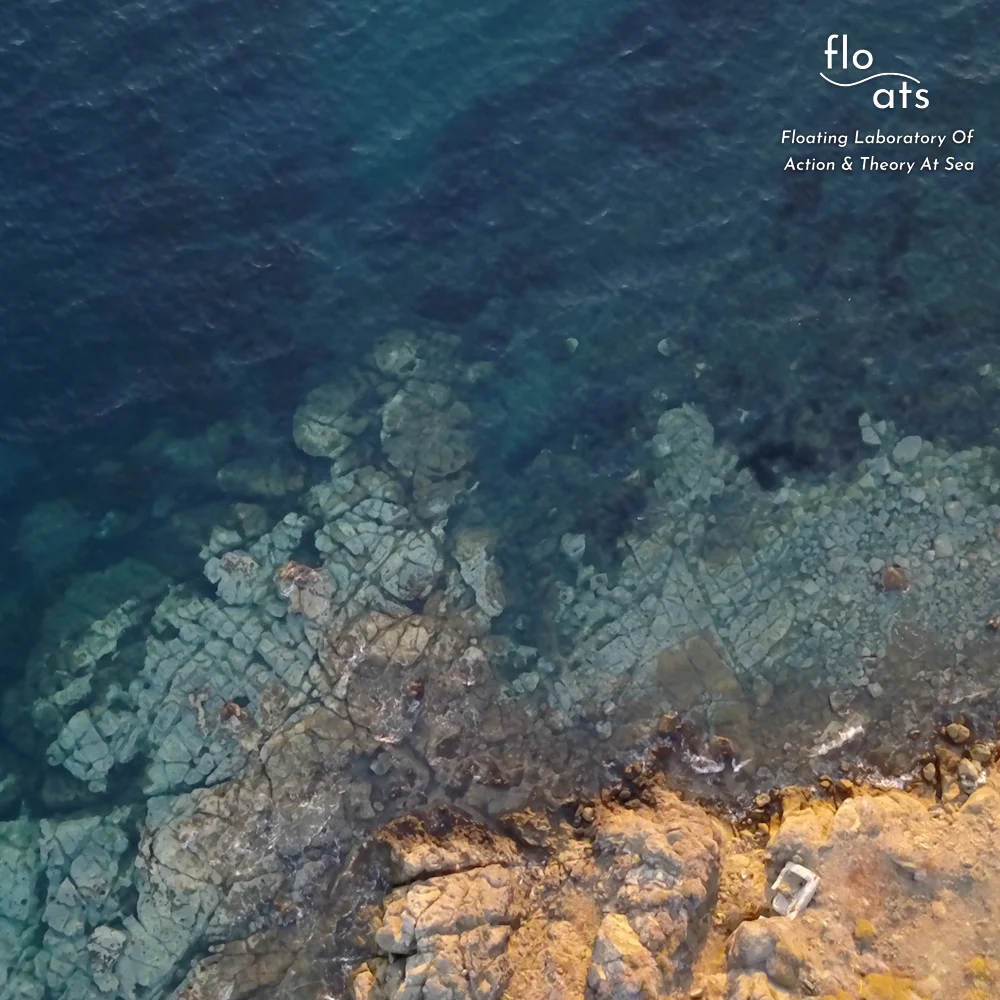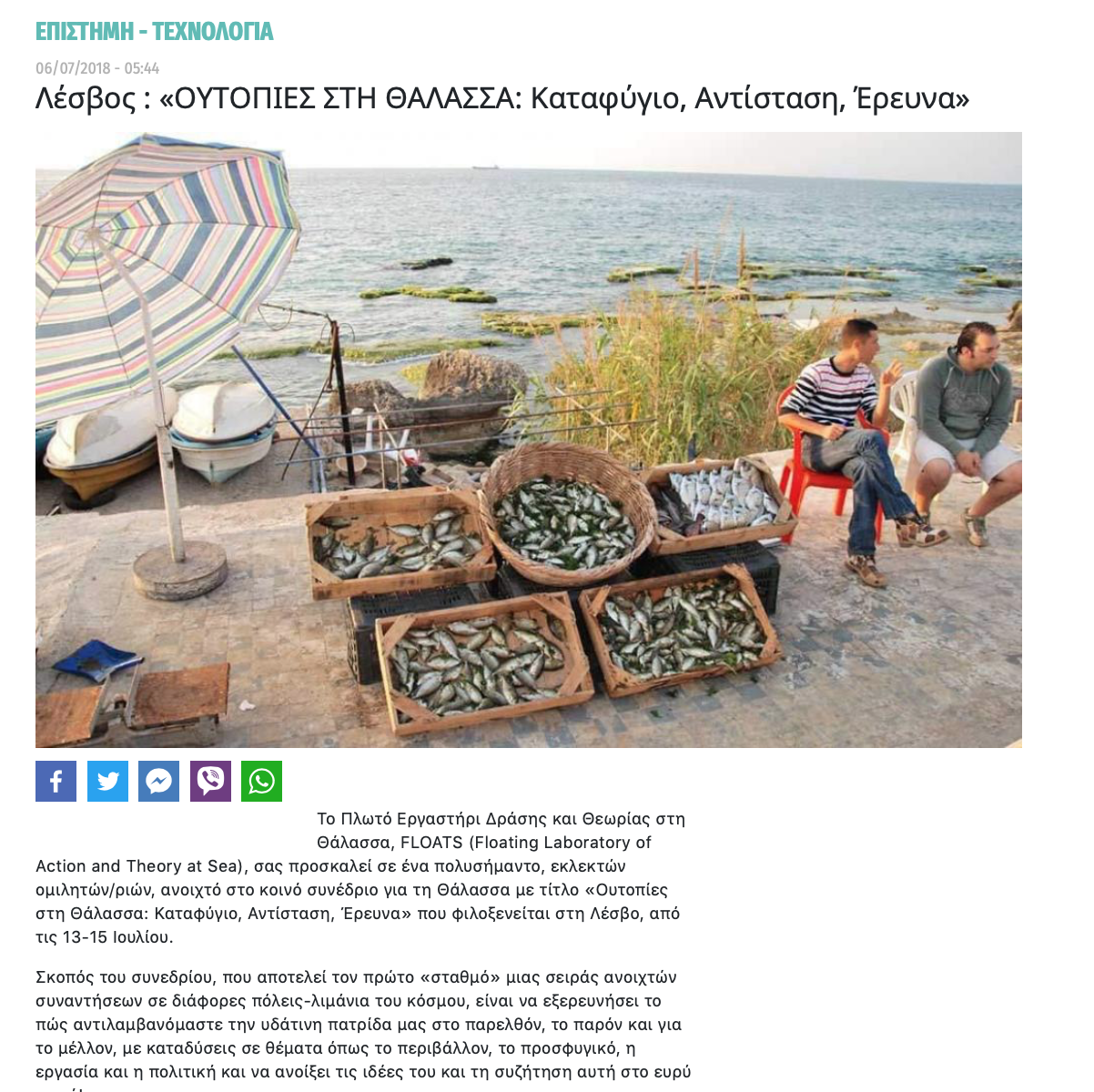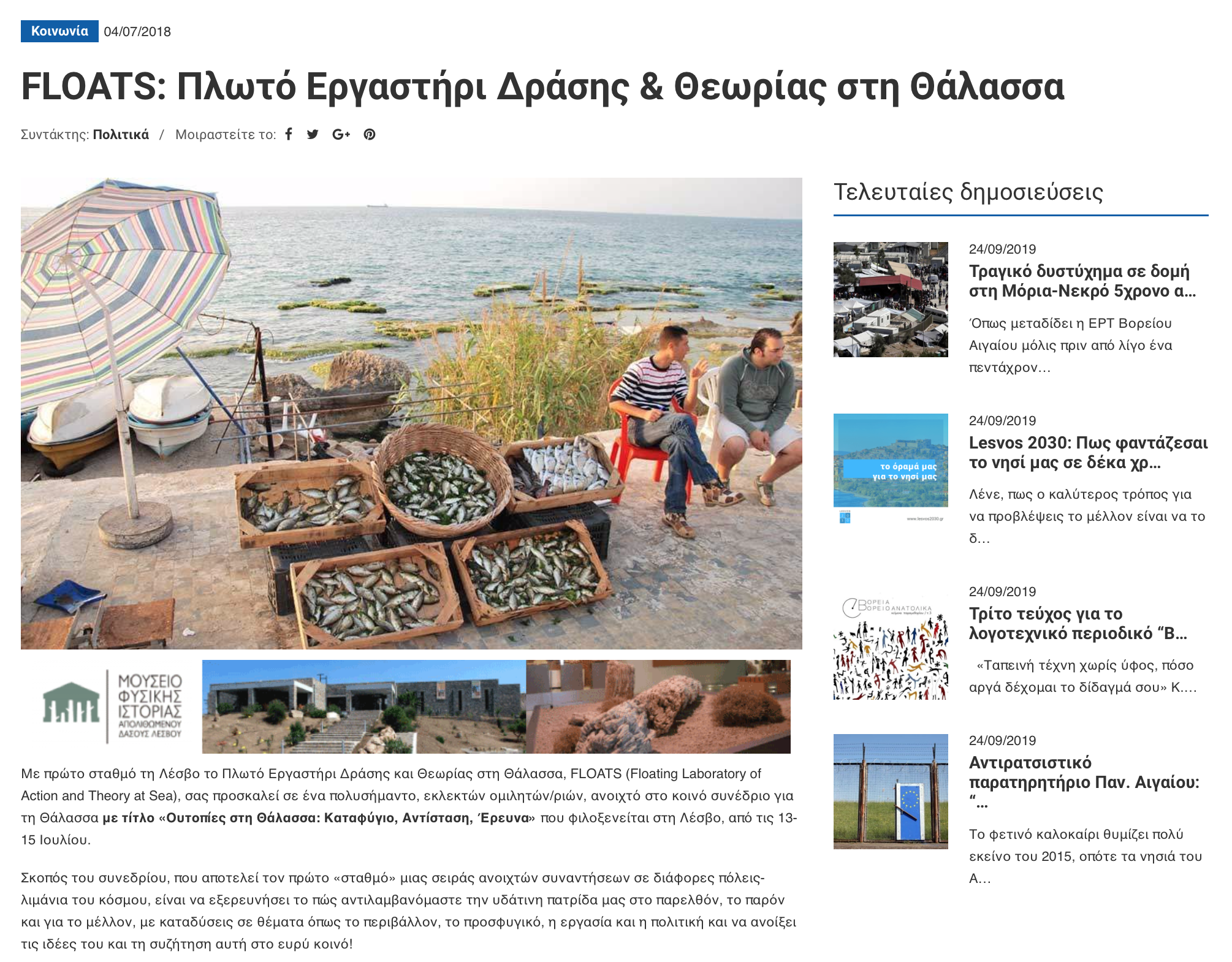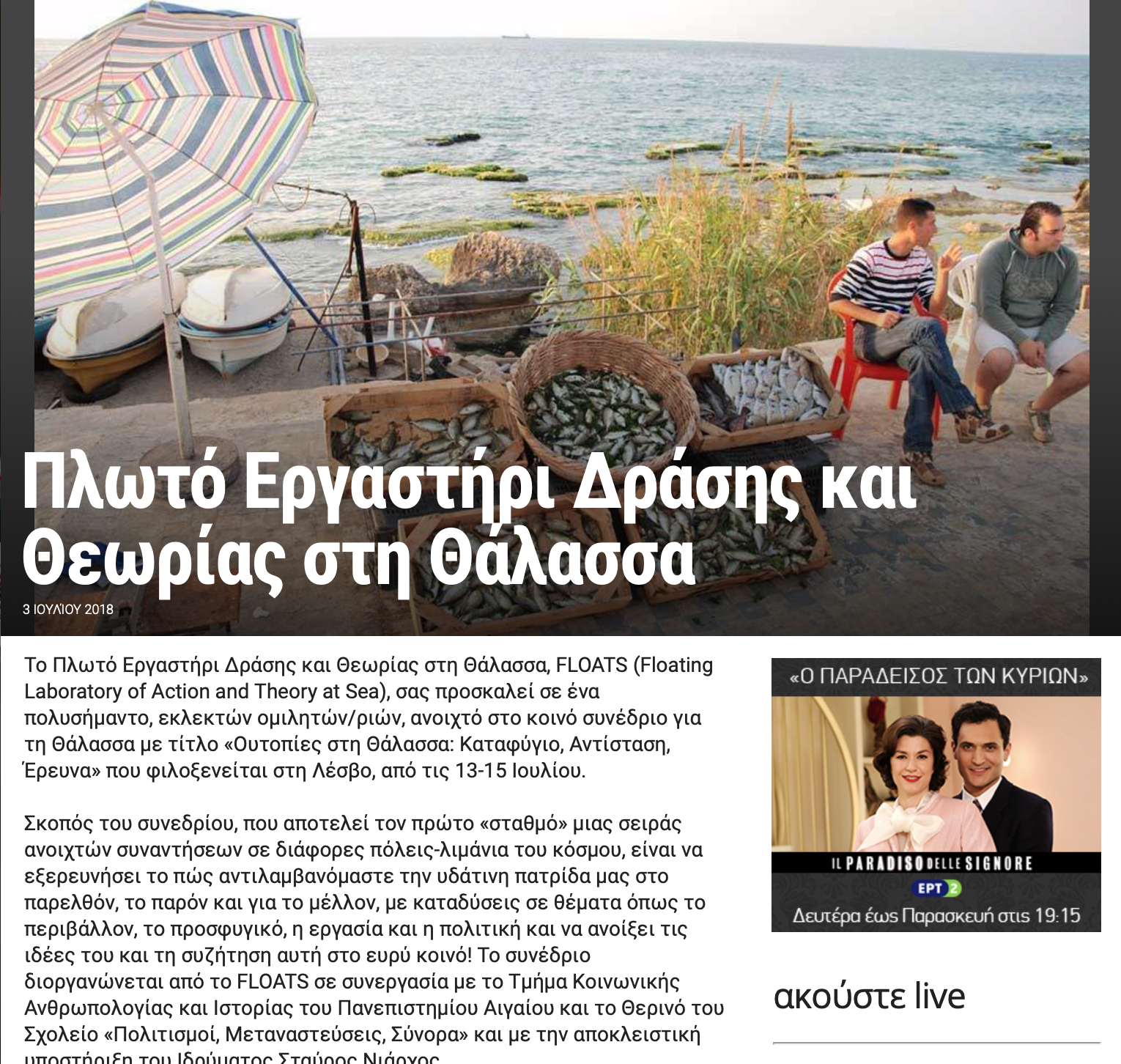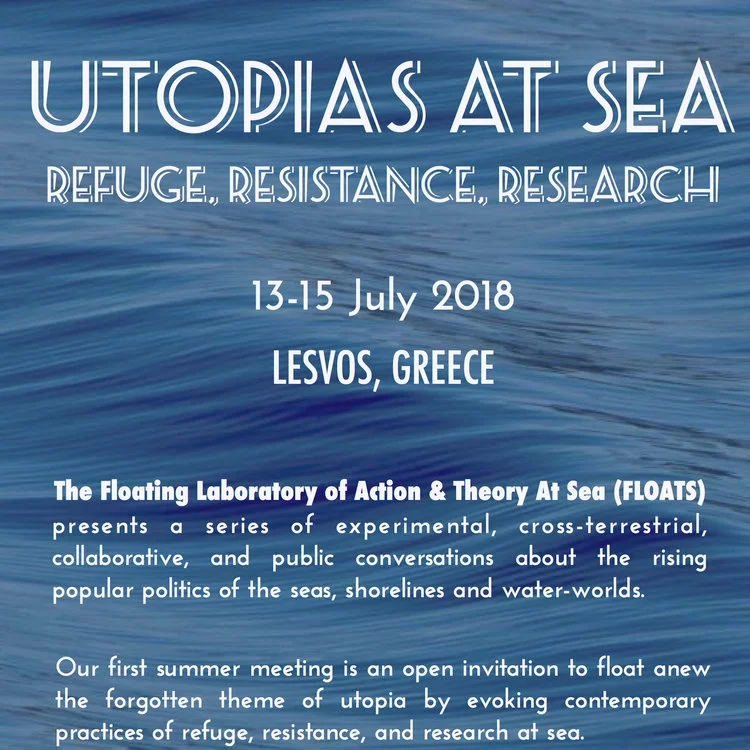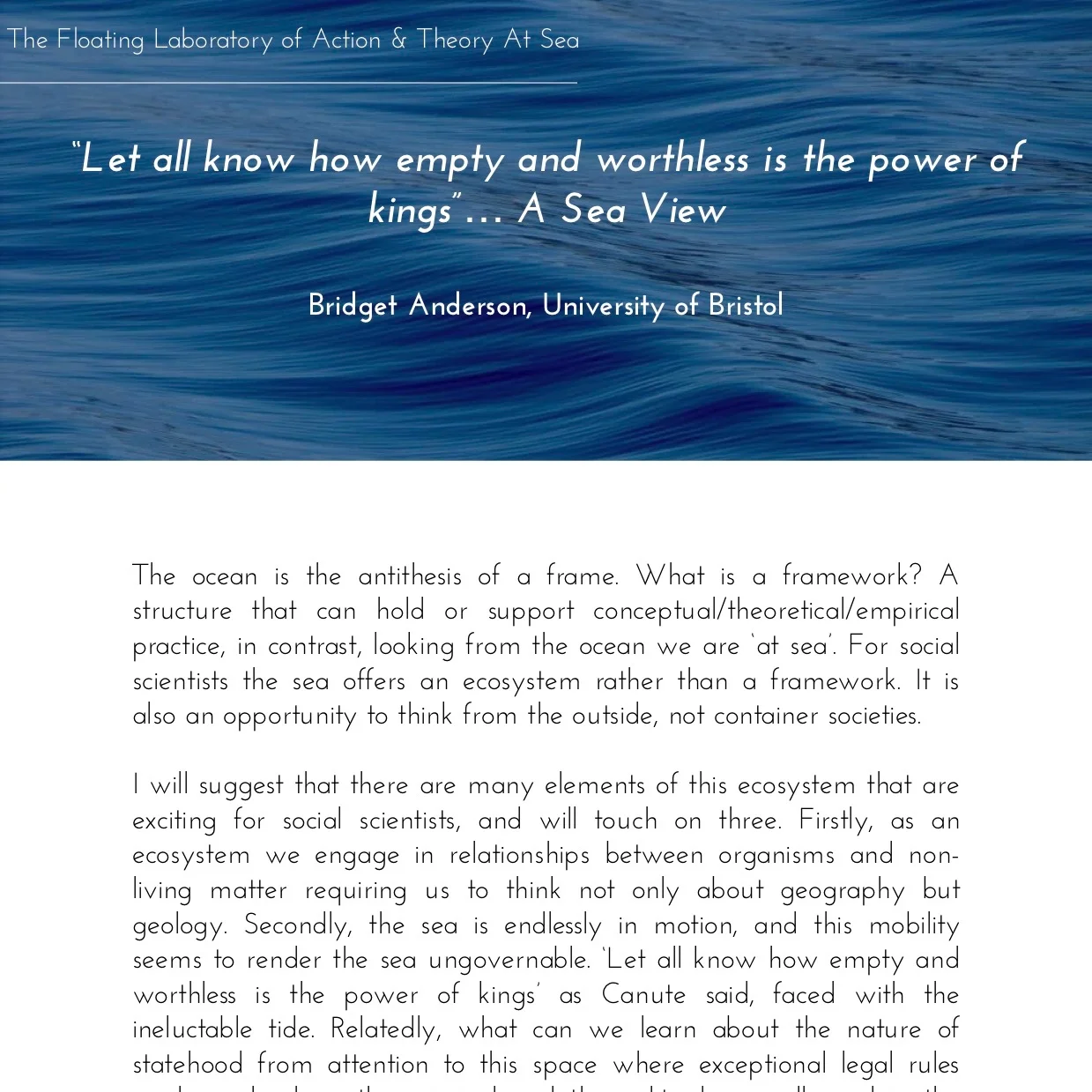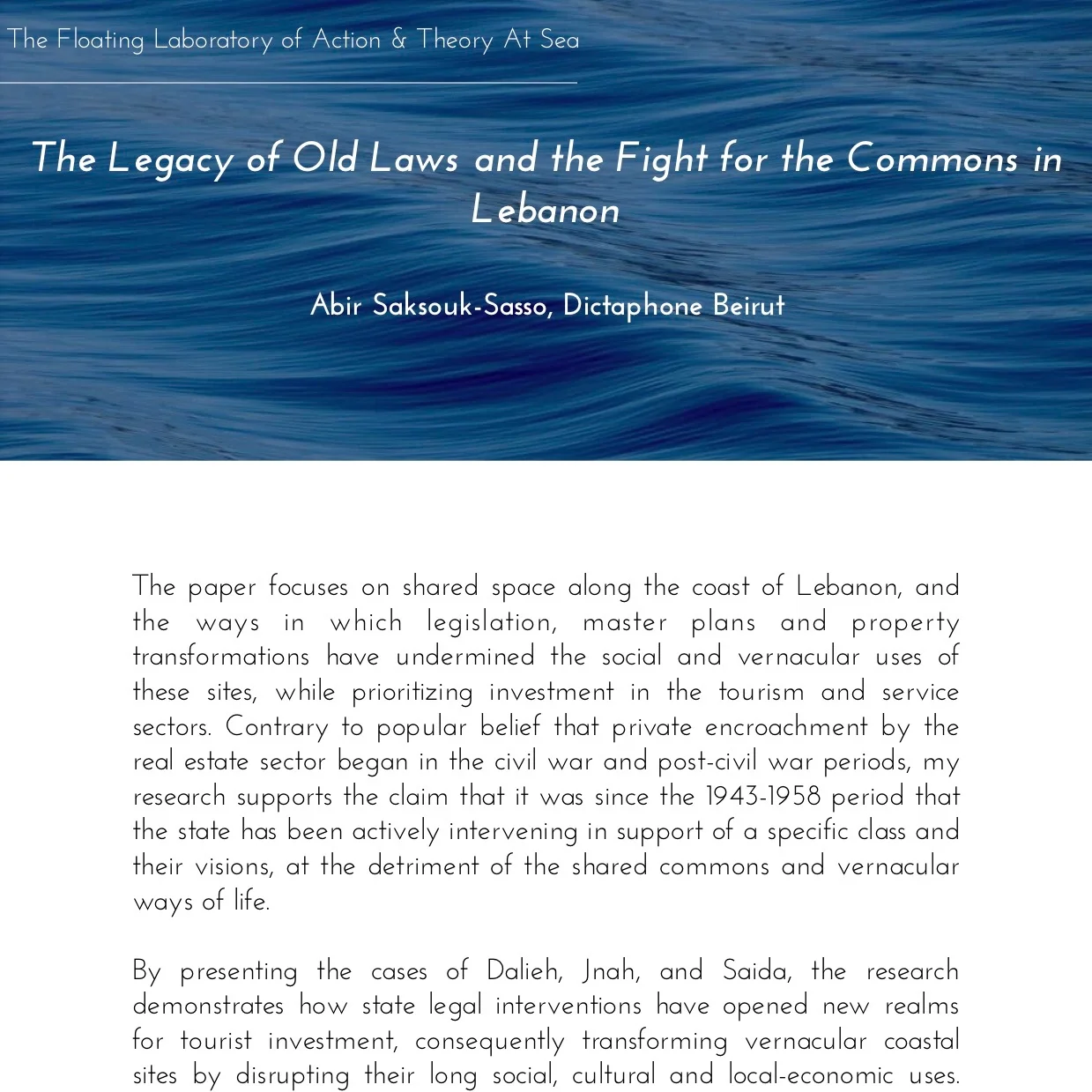Since 2011, the Forensic Oceanography project which I co-founded with Charles Heller has critically investigated the militarised border regime imposed by European states across the Mediterranean Sea, analysing the political, spatial and aesthetic conditions that have led to large-scale deaths of migrants over the last 30 years.
Read MoreIslands have long provided the setting for imagined utopias, as in Ibn Tufail’s 12th century tale Hayy ibn Yaqdhan and Thomas More’s Utopia of 1516. But the island of Lesvos could be described neither as a “utopia”, from the Greek “no” and “place” nor a “eutopia”, from the Greek “good” and “place”.
Read MoreHow do human encounters and experiences with the sea relate to the articulation of utopias and vice versa? The main aim of the workshop was to think in tandem the embracing vastness of the sea upon the planet and the necessary limitlessness of imagining better futures for all creatures upon it.
Read MoreCheck out our latest podcast ‘Traces’ on ‘Forensic Oceanography’, ‘The Dalieh Campaign’, and ‘Plastics in the Water’
With Lorenzo Pezzani (Goldsmiths), Charles Heller (Geneva University), Abir Saksouk-Sasso (Architect, Dictaphone Beirut), and Konstantinos Topouzelis (Marine Sciences, University of the Aegean)
Read MoreFILM: Sea Whistles
The Floating Laboratory of Action and Theory at Sea (FLOATS) was launched on July 2018 on the island of Lesvos, Greece. Over three days, more than 20 academics, artists and activists re-oriented their work and thoughts towards the Big Blue. The theme of this first meeting was “Utopias at Sea”.
Read MoreWith Victoria Hattam, Sarah Green, Lorenzo Pezzani, and Charles Heller
Topics:
“Watermarks”
“Tracing the Debris”
“Forensic Oceanography”
Read MoreTopic - Authority at the Port: Industry, Labor, and War - Laura Y. Liu, The New School
Read MoreAs part of the welcoming note for the first FLOATS meeting in Lesvos, Greece, Nikolas Kosmatopoulos, Marwa Elshakry, Venetia Kantza, and Akis Papataxiarchis elaborate on the origins of this new rethink-tank and explain how it can help change perceptions of the sea.
Read MoreThis workshop was made possible by the generous sponsorship from the Stavros Niarchos Foundation and the Center for Science and Society and the Department of History at Columbia University.
Read MoreTwo Day Conference at the American University of Beirut. Moderated by Dr. Marwa Elshakry (Columbia University) with Dr. Yaser Abunnasr (American University of Beirut), Dr. Nikolas Kosmatopoulos (American University of Beirut), and Jina Talj (Activist with Diaries of the Ocean)
Read MoreThis report is the outcome of the Masters Studio in Forensic Architecture, Centre for Research Architecture, Goldsmiths University of London. It was generated by students working collaboratively on a “Live Project”; an intensive hands-on pedagogical experiment that launched this academic year’s studio activities.
Read MoreΛέσβος : «ΟΥΤΟΠΙΕΣ ΣΤΗ ΘΑΛΑΣΣΑ: Καταφύγιο, Αντίσταση, Έρευνα» / Lesvos : “UTOPIAS AT SEA: Refuge, Resistance, Research” - LESVOS NEWS (HELLENIC BROADCASTING CORPORATION)
Read MoreΠλωτό Εργαστήρι Δράσης και Θεωρίας στη Θάλασσα / Floating Laboratory of Action & Theory At Sea
Read MoreThe sea – like the concept of utopia itself – does not feature much in our current social theories, let alone our contemporary political rhetoric or social imagination. If anything, the sea seems lately to assume a villainously protagonist role in many of our present-day dystopic realities: harrowing images of the liquid refugee cemetery of the Mediterranean, depressing statistics of declining aquatic life, floating waste and toxic maritime pollution, or the impending threat of rising sea levels dominate our news from neighboring seascapes.
Read MoreΕνα εργαστήρι «επιπλέει» στη Λέσβο" / A Workshop "floats" in Lesvos
Read MoreFLOATS Floating Laboratory of Action & Theory at Sea / Πλωτό Εργαστήρι Δράσης & Θεωρίας στη Θάλασσα
Read MoreThe ocean is the antithesis of a frame. What is a framework? A structure that can hold or support conceptual/theoretical/empirical practice, in contrast, looking from the ocean we are ‘at sea’. For social scientists the sea offers an ecosystem rather than a framework. It is also an opportunity to think from the outside, not container societies.
Read MoreThe paper focuses on shared space along the coast of Lebanon, and the ways in which legislation, master plans and property transformations have undermined the social and vernacular uses of these sites, while prioritizing investment in the tourism and service sectors.
Read More
